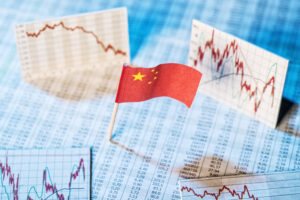The Uncertainty in China Is Kryptonite to Global Markets
The comments below are an edited and abridged synopsis of an article by Charles Hugh Smith
Few seem to realize the financial risks that could arise from the situation in China. One thing is for sure: Markets don’t like uncertainty, and Covid restrictions will trigger production and shipping consequences for global trade.
The reactions of authorities and the people in China generate a different level of uncertainty. The regime is trapped; if its response is repression, punishment and lockdowns, it risks changing the populace’s understanding of the social contract in a destabilizing dynamic. But offering concessions opens the door to demands for further concessions, an equally destabilizing dynamic.
There are no positives for global markets in any of these developments, as each has difficult to predict and control effects. Lockdowns could disrupt the supply chain and, by weakening economic activity, they could affect the social contract between the state citizens.
The protests may blow over soon and things will go back to normal, but markets cannot afford to put faith in such complacent forecasts, because risk rises asymmetrically in self-reinforcing uncertainty.
It’s nice to dismiss low-probability long-tail risks as nothing, but that’s not prudent when it comes to risks with potentially severe financial consequences.
As for asymmetric risks, a market must provide opportunities to limit same by selling and/or hedging. The cost of waiting around is also asymmetric: Only first-movers get high prices for at-risk assets and low prices for hedges.
Those who wait because they dismissed uncertainties get their heads handed to them on a platter.
Those who discount risk may regret it, as markets don’t like uncertainty for a good reason: Uncertainty generates asymmetric risks that have the potential to deliver life-changing losses to the unwary and over-confident.

